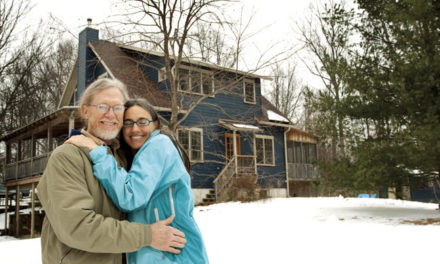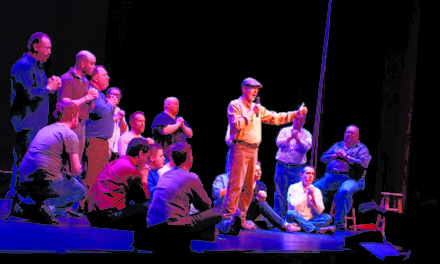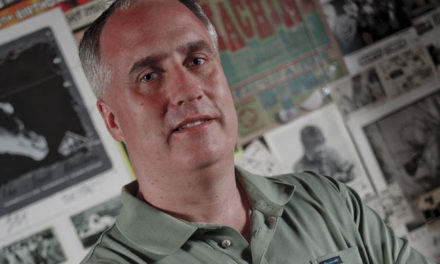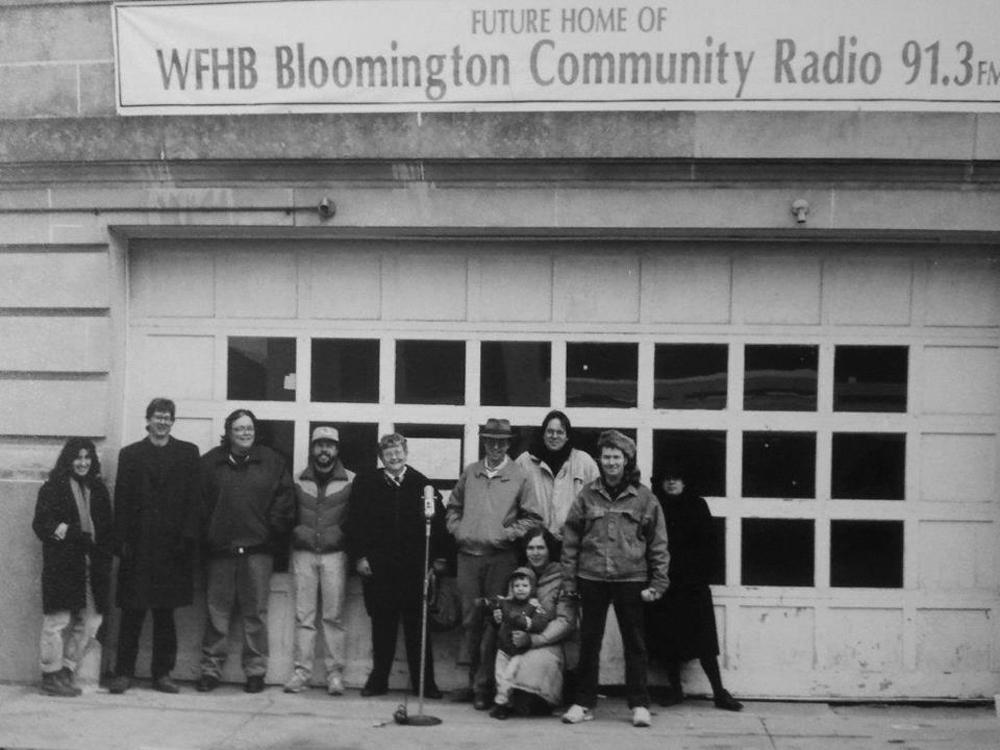
(right, l-r) Rebecca Cruz; Steve “The Ol’ Professor” Thrasher; Bill “Gus Travers” Weaver; John Byers; Olga Zai; Richard Fish; Jeannette Brown, kneeling with son, Nick; Jim Manion; Brian Kearney; and Deneise Self. Courtesy photos
BY MOLLY BRUSH
On January 4, Bloomington radio station WFHB will celebrate 25 years of broadcasting local music, news, and public affairs to the community. And although the station has been on the air for 25 years, its roots go back more than four decades.
Jim Manion, WFHB music director and one of the station’s founders, says conversations about starting a community radio station in Bloomington first began in the mid-1970s. “There was a real creative renaissance going on at the time,” Manion says. The radio landscape was undergoing a seismic shift as the popularity of FM radio gradually overtook once-dominant AM, and the founders were inspired by the potential for musical exploration and discovery that FM offered, he explains.
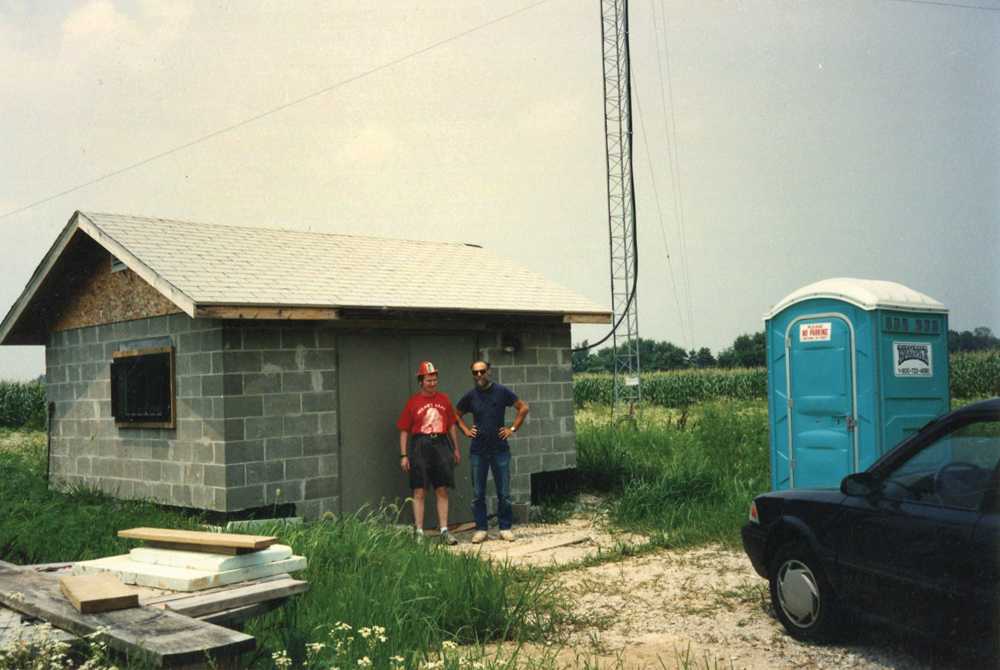
eft, l-r) Brian Kearney and Jeffrey “The Sundog” Morris at Radio Ridge, WFHB’s original headquarters on Rockford Road.
But putting the idea into action proved to be challenging, and the station didn’t actually get up and running until 1993. For 14 months, WFHB operated out of a concrete bunker on Rockport Road, where its first transmitter was housed. In early 1994, the station moved to its current location, the former firehouse at 108 W. 4th Street.
From those humble beginnings, WFHB has become an integral part of the community. With just three full-time and two part-time staff members, the station relies on approximately 150 volunteers to serve as DJs, reporters, engineers, editors, scriptwriters, hosts, producers, and more. About two-thirds of the station’s broadcast schedule features music, including mixed-genre and single-genre programs. The rest is devoted to local news reporting and public affairs programming.
Jar Turner, the station’s general manager, says WFHB offers an alternative not only to commercial radio, but also to National Public Radio.

WFHB General Manager Jar Turner. Photo by Rodney Margison
“Because we’re a community radio station, we’re really representative of the community,” he says. “It’s grassroots. It’s bottom-up instead of top-down.”
Manion adds, “I think we’ve done an exceptional job of providing a true alternative all these years—a true place of musical discovery.”
Turner says that WFHB will mark the anniversary with a variety of activities and events, including a display at Darn Good Soup and a block party. He hopes the anniversary celebration will help increase the station’s visibility and grow its donor base so that it is less reliant on grant funding, particularly now that the Corporation for Public Broadcasting, from which it receives a significant portion of its funding, is facing federal budget cuts. Those cuts could mean the station will require increased community support to continue providing high-quality local programming, Turner says.
Despite the potential challenges ahead, both Turner and Manion are confident that WFHB will be around to celebrate its 50th anniversary in 2043. Turner hopes that as the station continues to grow, not only will it represent Bloomington, but it also will get listeners near and far interested in the city.
“I want it to put Bloomington on the map,” Turner says. “I want people to know the heartbeat of Bloomington by tuning in.”
Visit WFHB on the radio at 91.3 FM or online at wfhb.org.
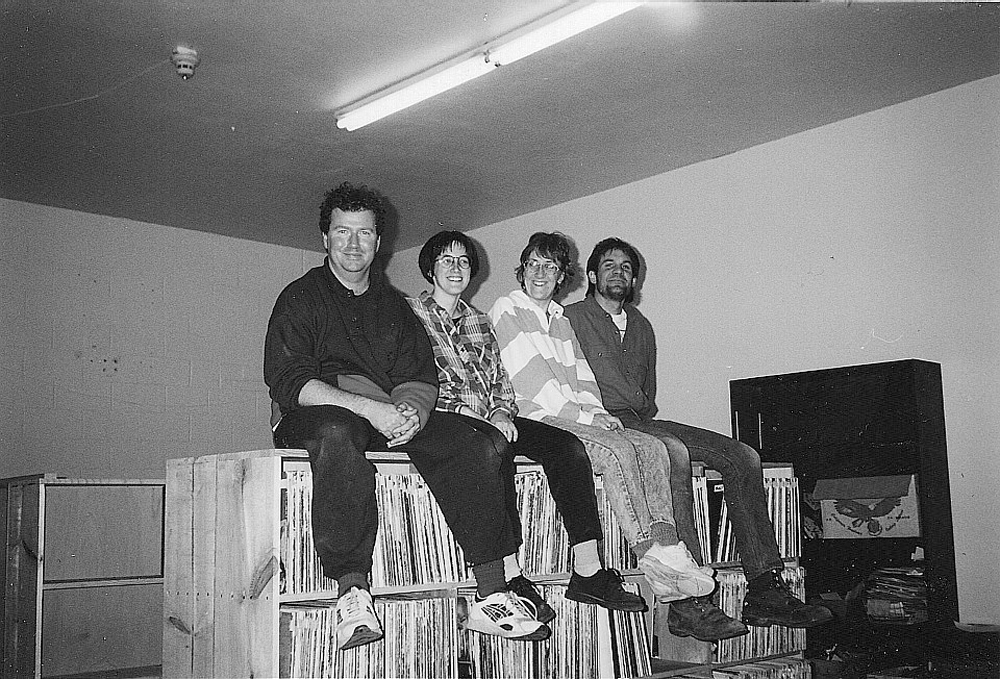
(above, l-r) Brian Kearney, Delia Gillen, Cindy Beaule, and Dan Shaffer atop shelves built to hold the WQAX vinyl collection that was donated to WFHB.



